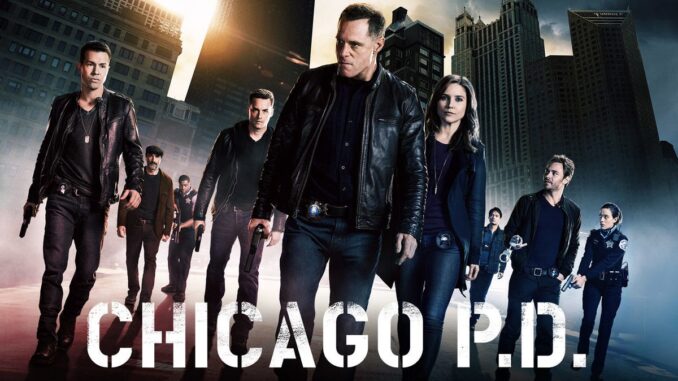
The Crucible and the Compass: How Chicago PD Saved Jason Beghe
In the unforgiving glare of the spotlight, where personas are meticulously crafted and vulnerability often hidden, the story of Jason Beghe stands as a stark and moving testament to the human spirit’s capacity for endurance and the unexpected sanctuaries found amidst the storm. Known to millions as Sergeant Hank Voight, the steely-eyed, morally complex leader of Chicago P.D.’s Intelligence Unit, Beghe embodies a force of nature on screen. Yet, behind the unyielding gaze and gravelly voice, lay a man grappling with a darkness that threatened to consume him, a man for whom the very show that defined his public image became an unlikely, indispensable lifeline.
Before the streets of Chicago became his fictional battleground, Jason Beghe was adrift in a far more insidious war: a deeply personal struggle with mental health, compounded by physical pain stemming from a debilitating neck injury. He has spoken with unflinching honesty about a period of profound suffering, characterized by intense anxiety, depression, and a sense of being utterly unmoored. It was a time when the world seemed to lose its color, when the gnawing silence of internal turmoil threatened to drown out all else. The demands of a long and challenging acting career, which often requires immense emotional resilience and the constant negotiation of identity, may have only exacerbated this internal bleed. For many, such a labyrinthine struggle leads to isolation, a retreat from the very world that might offer solace. Beghe was caught in this lonely crucible, his famed intensity on screen perhaps a reflection of the profound battles raging within.
Then came Chicago P.D. and the indelible character of Hank Voight. On the surface, Voight is a man defined by his gruff exterior, his questionable methods, and his unwavering loyalty to his city and his unit. He is a survivor, a protector, a man who carries the weight of the world on his shoulders, often making impossible choices in the name of a greater good. For Beghe, embodying Voight was not merely a role; it became, in a profound and almost paradoxical way, a form of therapy. The sheer demanding nature of the role – the long hours, the physical scenes, the relentless emotional intensity required to portray a character perpetually on the edge – forced a necessary external focus. It demanded a discipline, a presence, and a commitment that left little room for the internal monologue of despair.
The show, in essence, became Beghe’s compass, pulling him from the turbulent seas of his personal struggles back towards a fixed point. The structure of daily call times, the rhythm of scene work, the lines to be memorized, the physicality required for Voight’s imposing presence – all these practical elements forged a necessary structure in a life that had become chaotic. Beyond the professional demands, the set of Chicago P.D. evolved into a crucible of community. His fellow cast members and the dedicated crew became more than colleagues; they became an extended family, a network of support and shared purpose. In the camaraderie of the green room, the shared laughter between takes, and the collective effort to bring a story to life, Beghe found an antidote to isolation, a gentle but firm hand pulling him back into the world.
Moreover, the character of Voight himself offered an unexpected channel for Beghe's internal intensity. Voight’s unwavering drive, his protective instincts, his righteous anger against injustice – these facets of the character allowed Beghe to externalize and channel powerful emotions that might otherwise have festered within. The boundaries between actor and character blurred in a redemptive way; the strength Voight exuded on screen subtly began to reinforce Beghe's own burgeoning resilience off it. The fight Voight waged on the streets of Chicago became a metaphor for the fight Beghe waged within himself, a constant reminder that even in the darkest corners, a will to survive and protect could prevail.
Jason Beghe’s decision to open up about his personal struggles is as courageous as any act portrayed by his on-screen alter ego. It’s a powerful illustration of how purpose, community, and the sheer discipline of demanding work can become the anchors in a stormy life. Chicago P.D. didn't just give him a job; it gave him a reason to get up every day, a framework to rebuild within, and a team to lean on. It was a crucible that forged resilience, and a compass that guided him back to himself. His story serves as a profound reminder that even in the brightest lights of celebrity, there are hidden battles, and that sometimes, the very art we create can be the unexpected saving grace that pulls us back from the brink.
